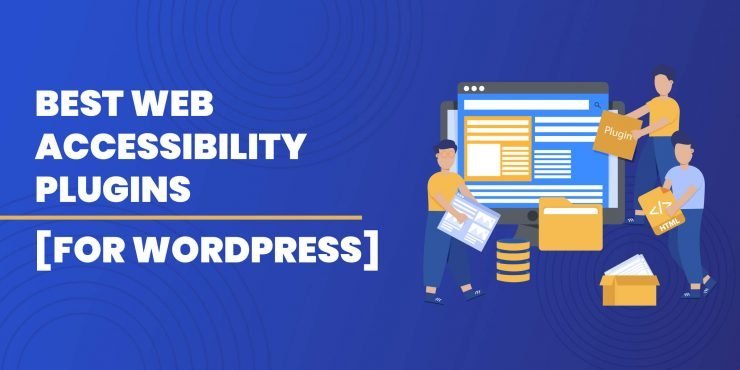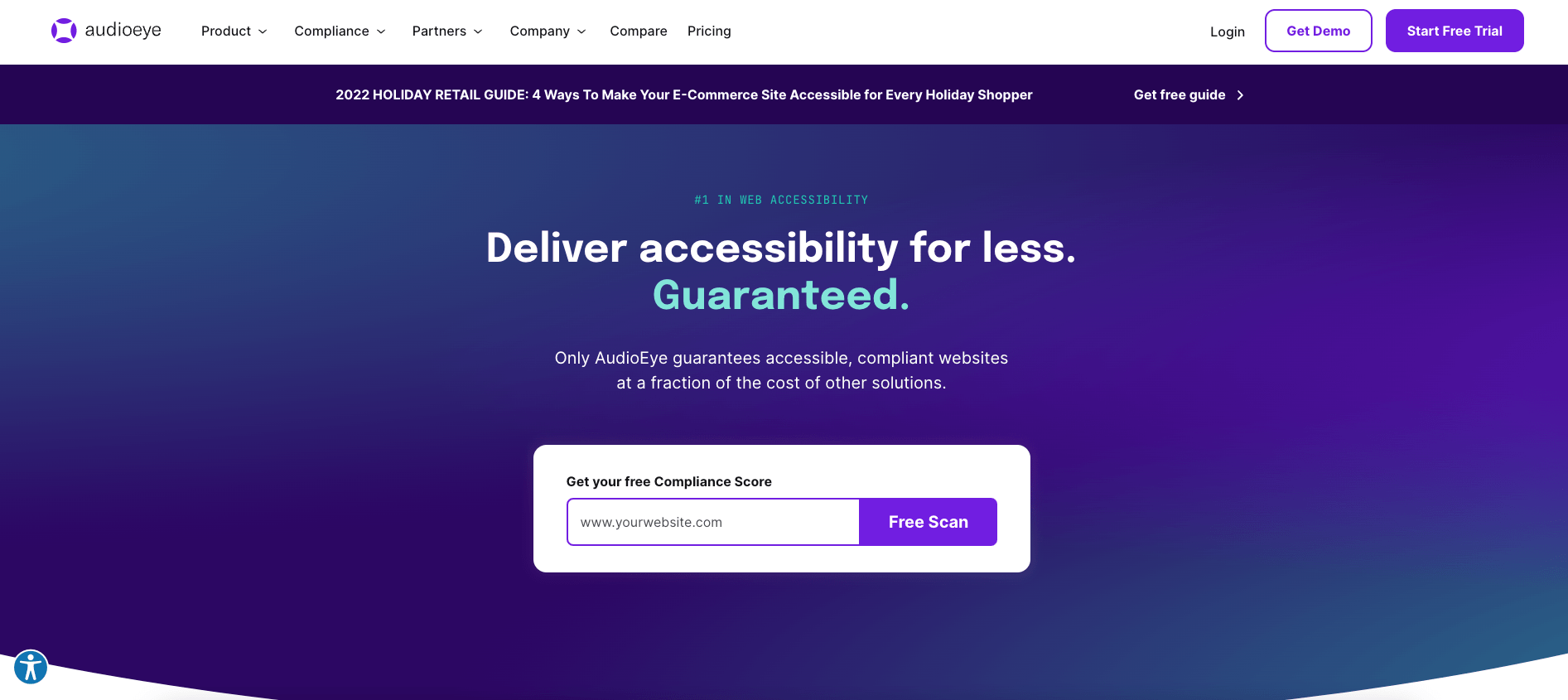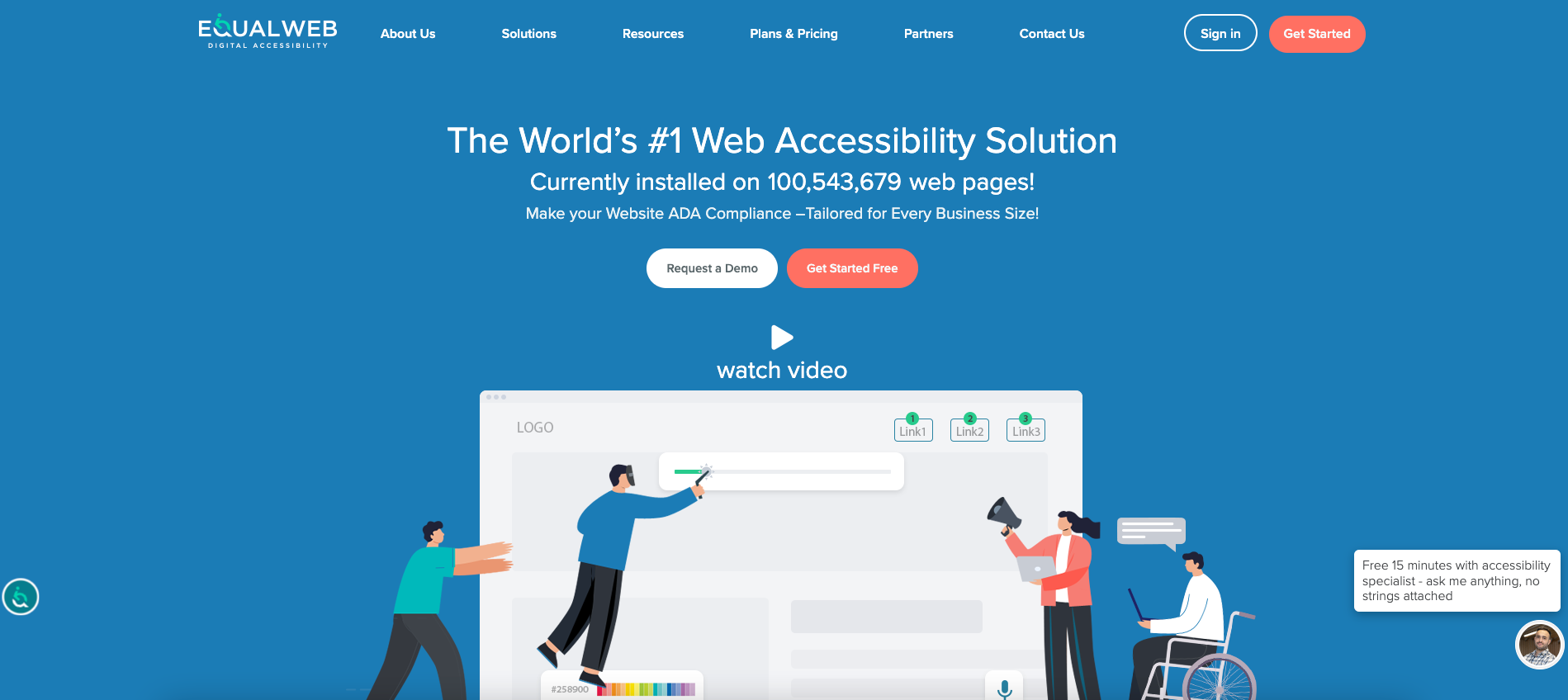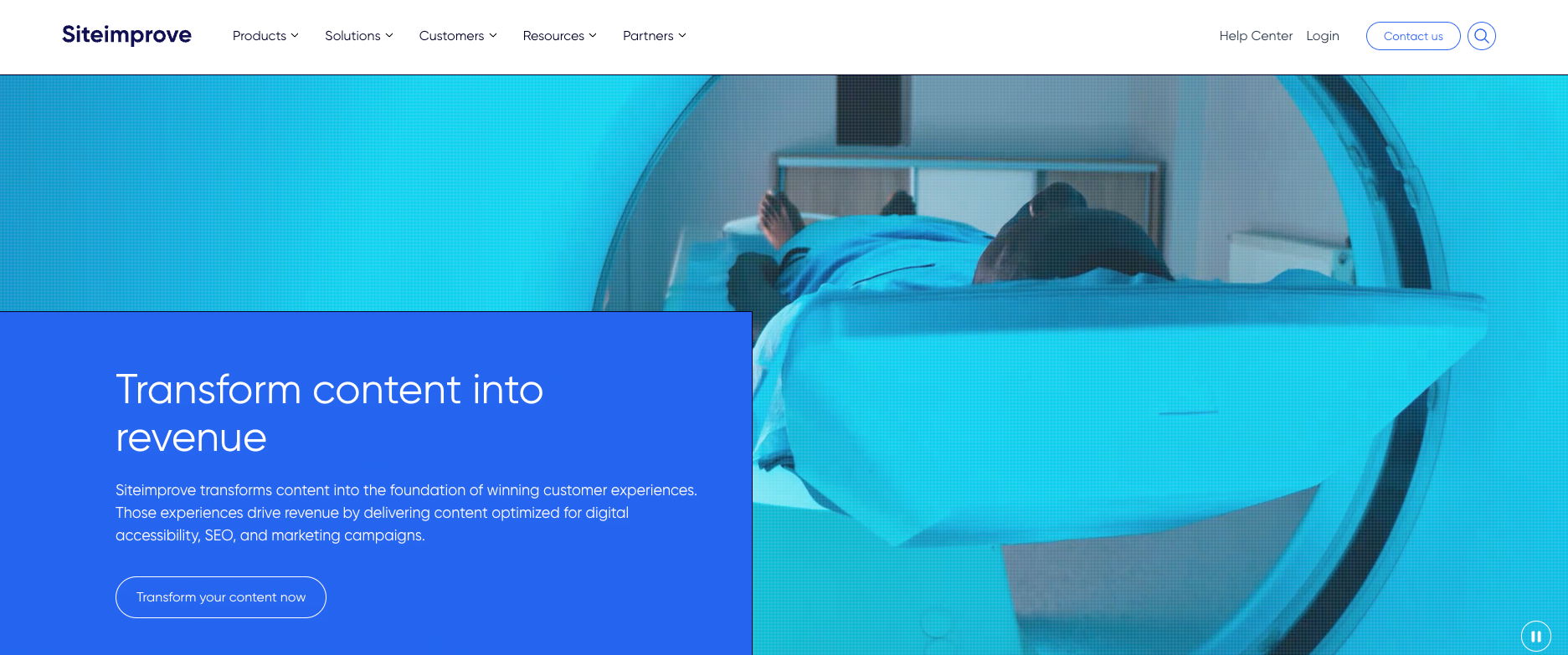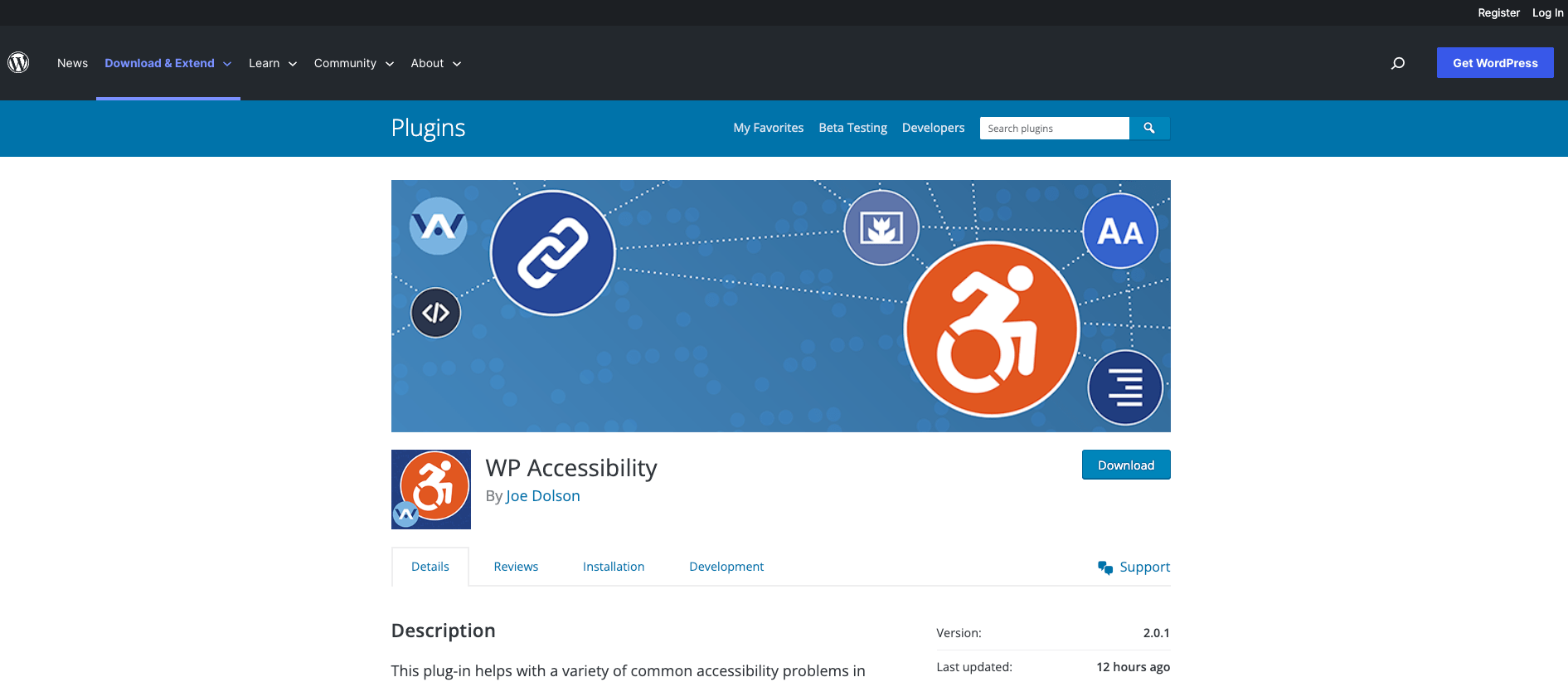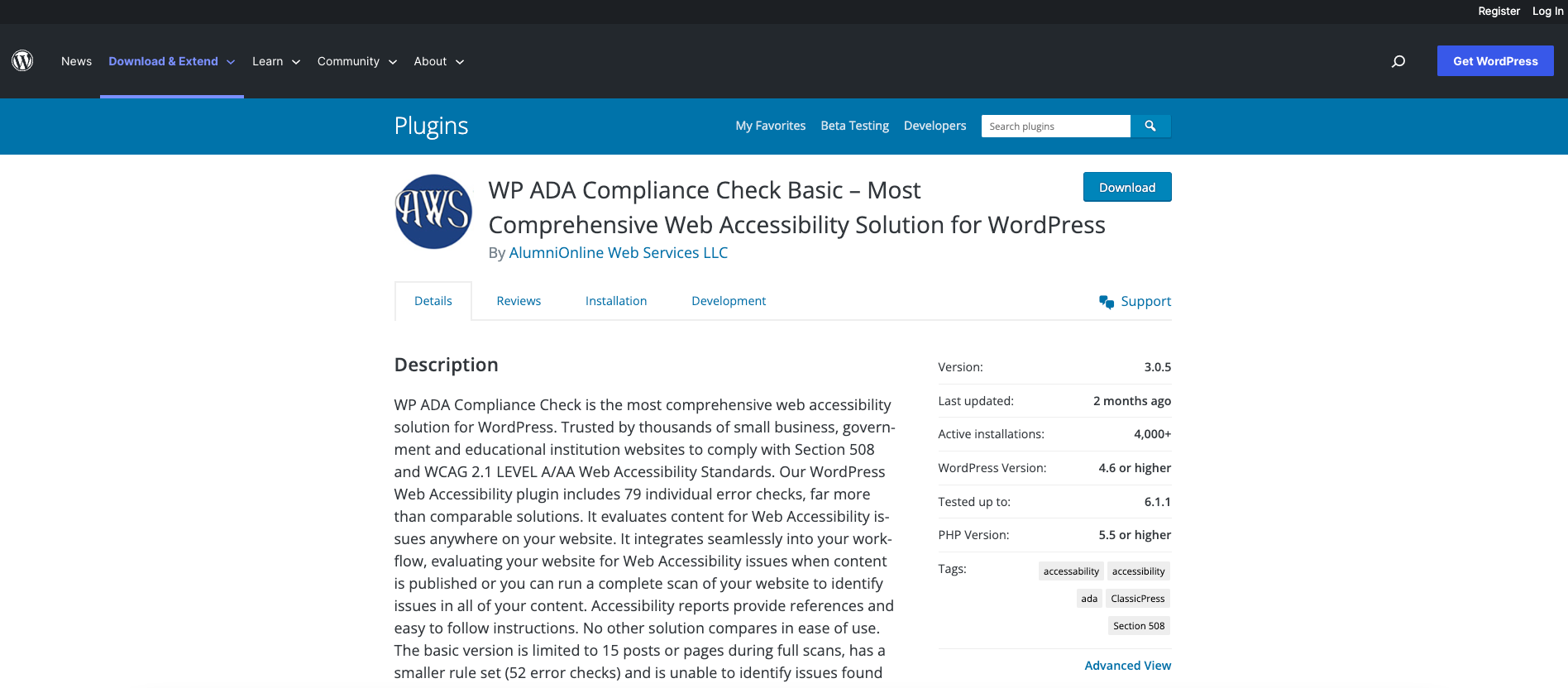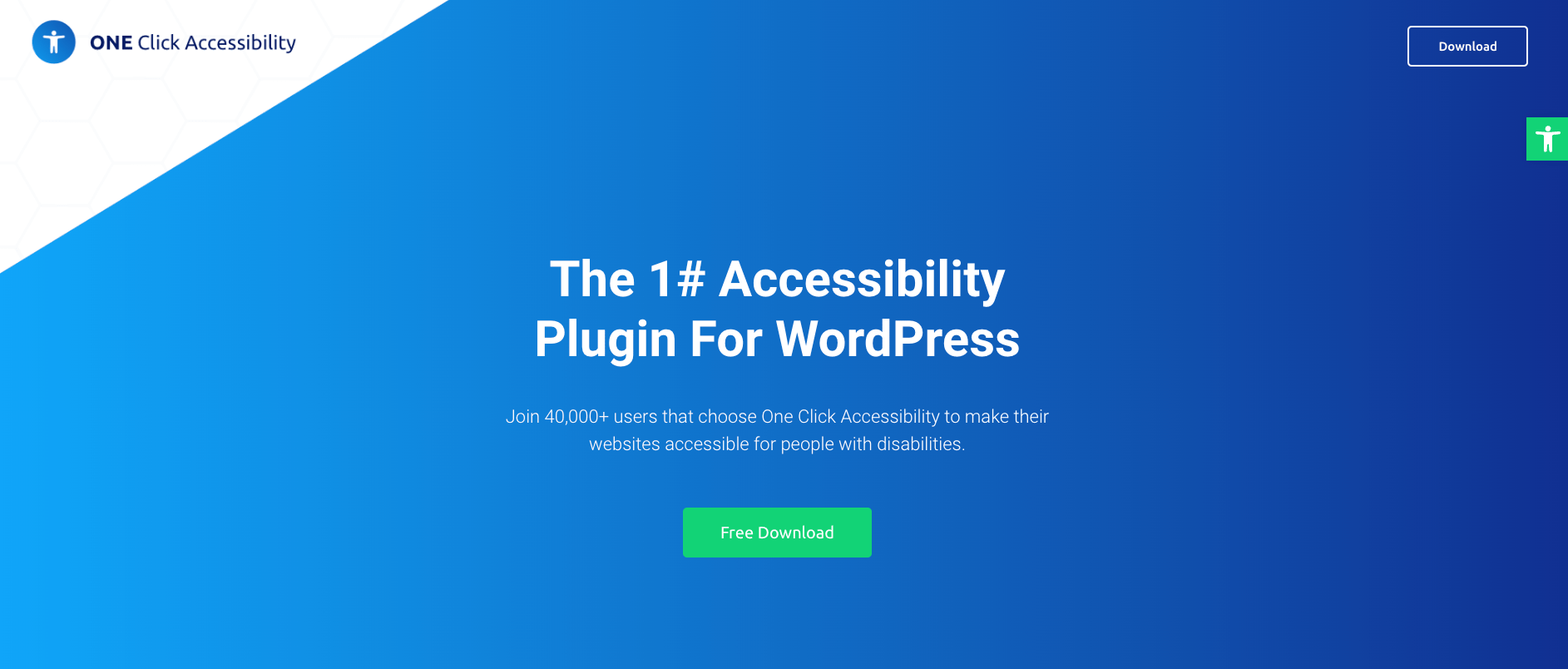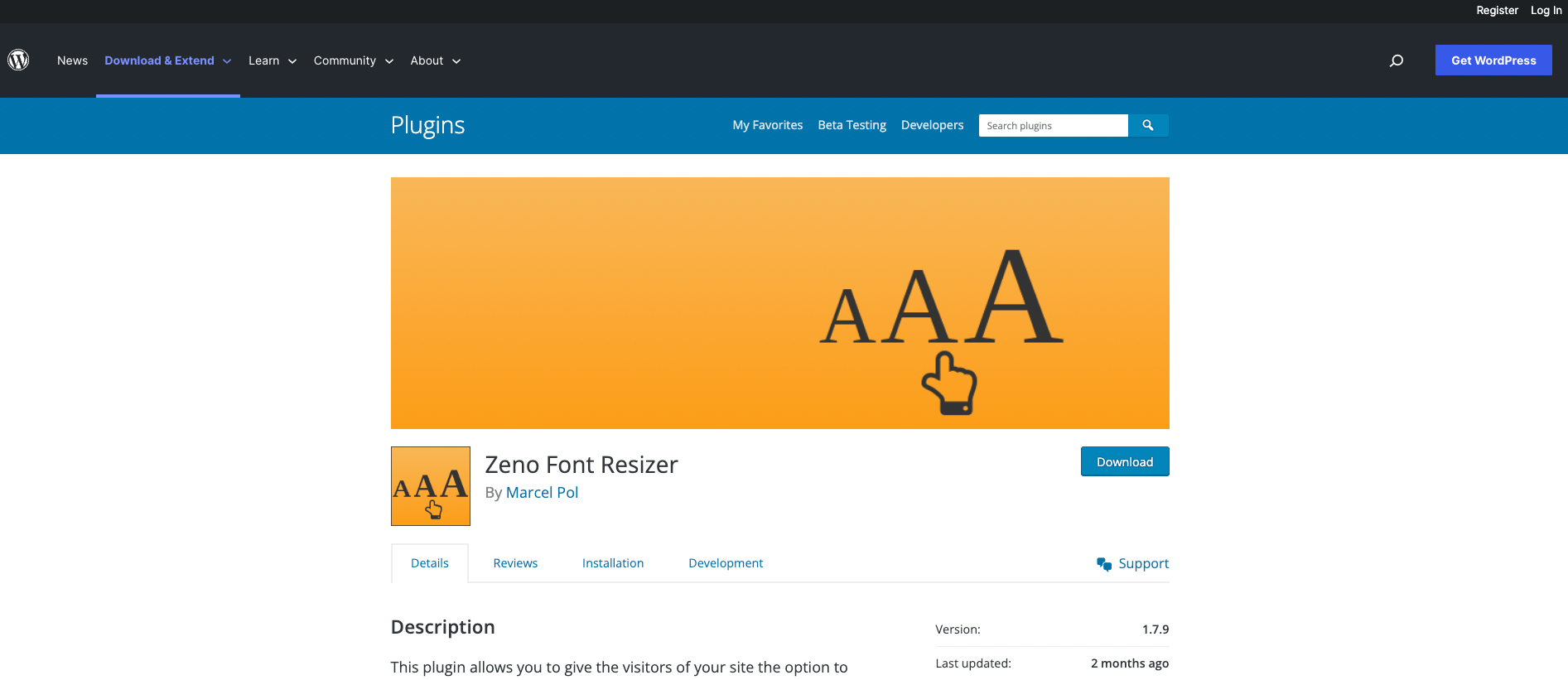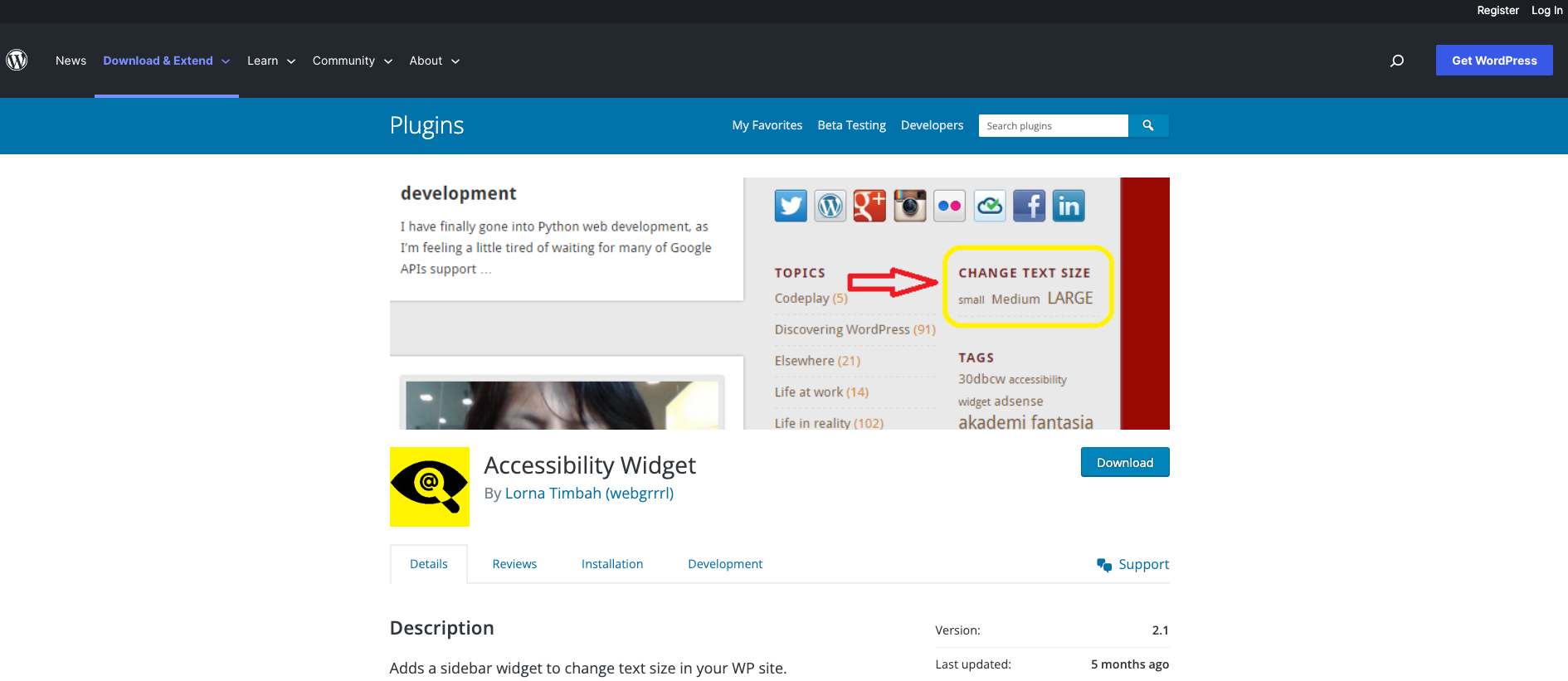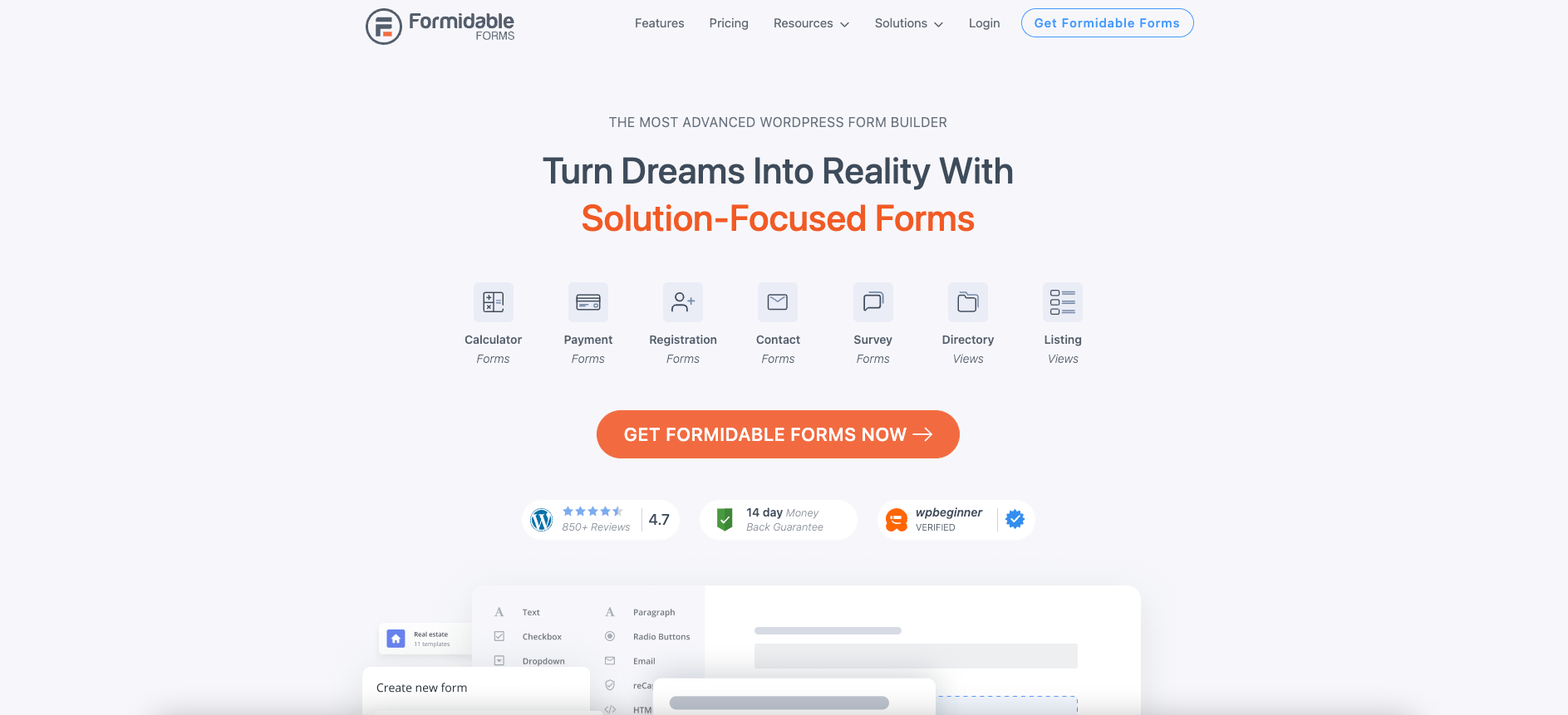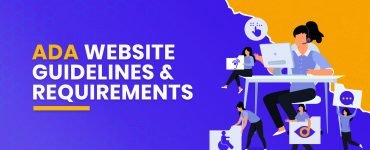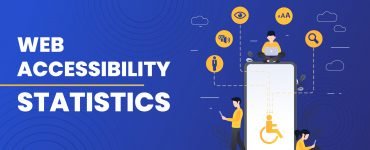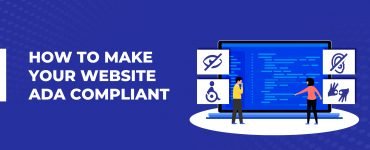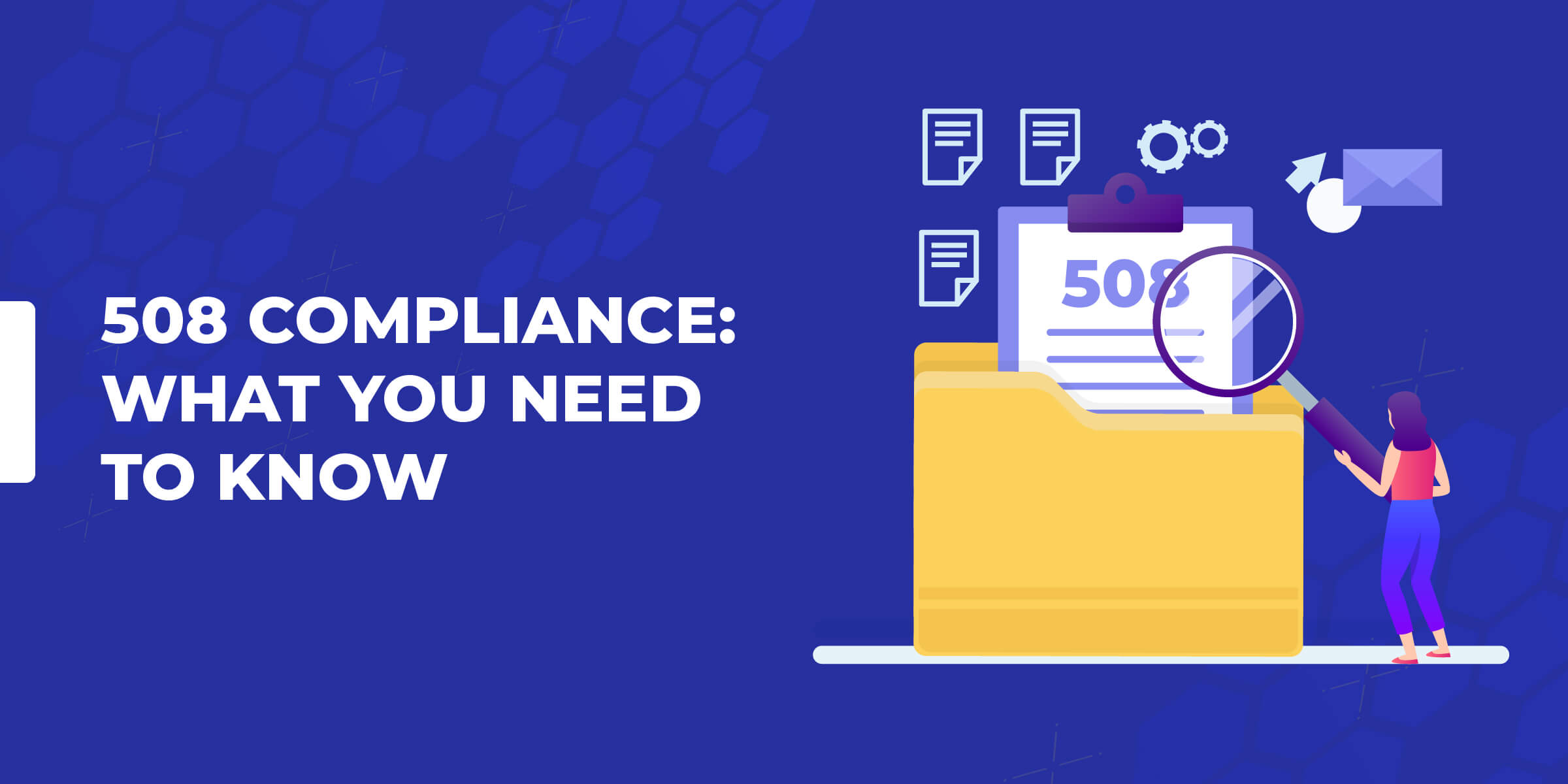As a site owner, accessibility is non-negotiable. But how you go about making your site accessible… that’s another story.
Web accessibility plugins are designed to make optimizing your site for accessibility and ADA and WCAG-compliant easy.
Here are the top 11.
Table of Contents
- UserWay
- accessiBe
- AudioEye
- EqualWeb
- SiteImprove
- WP Accessibility
- WP ADA Compliance Check Basic
- One Click Accessibility
- Zeno Font Resizer
- Accessibility Widget
- Formidable Forms
- What Does a Web Accessibility Plugin Do?
- Are Web Accessibility Plugins Easy to Implement?
- Should I Get an ADA plugin?
- Frequently Asked Questions
We offer this website completely free to our visitors. To help pay the bills, we’ll often (but not always) set up affiliate relationships with the top providers after selecting our favorites. However, we do our best not to let this impact our choices. There are plenty of high-paying companies we’ve turned down because we didn’t like their product.
An added benefit of our relationships is that we always try to negotiate exclusive discounts for our visitors.
UserWay
Best overall
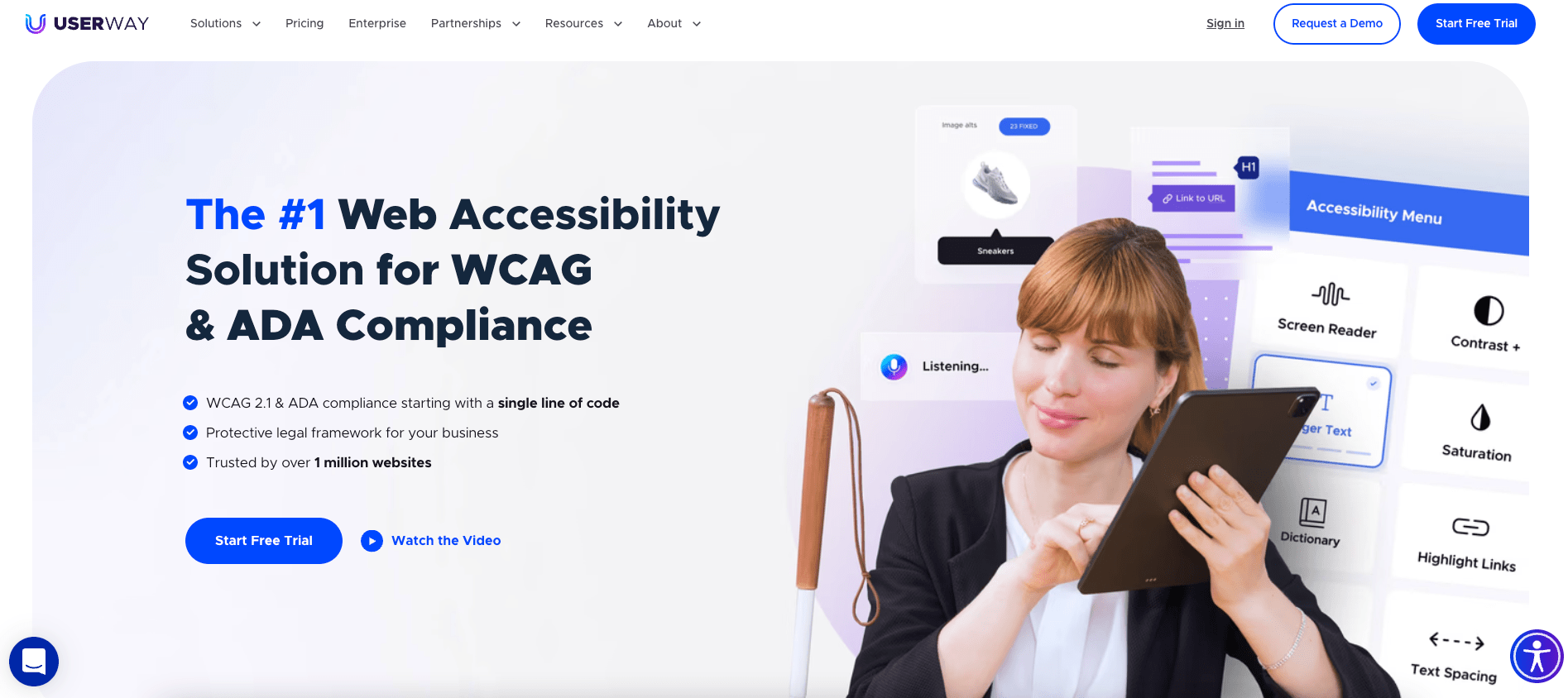

Pricing: $490-$3,290+ per year
With three different plans, UserWay is our overall top pick for accessibility plugins for Word Press.
Starting with a single line of code, UserWay’s AI-based technology ensures your site is compliant with WCAG 2.1 & ADA. Since the code is intuitive, it constantly checks for updates to guidelines and adjusts your site accordingly to make sure your site stays compliant.
The easy-to-navigate interface allows users with any disability to choose an option that makes the site more accessible to them. These include options for font and color handling, animations, audio muting, and an on-demand dictionary.
The code is also designed to be easily read by a screen reader.
Pros
- AI-based technology ensures WCAG 2.1 & ADA compliance.
- Automatically updates to adhere to changing guidelines.
- Offers diverse options for accessibility adjustments.
- Screen reader compatibility enhances usability for visually impaired users.
- Multiple plans cater to different website sizes and needs.
Cons
- Higher-tier plans can be expensive.
- May require some technical knowledge for setup.
- Limited customization options in lower-tier plans.
- Read our Review on UserWay
accessiBe
Runner-up for best overall
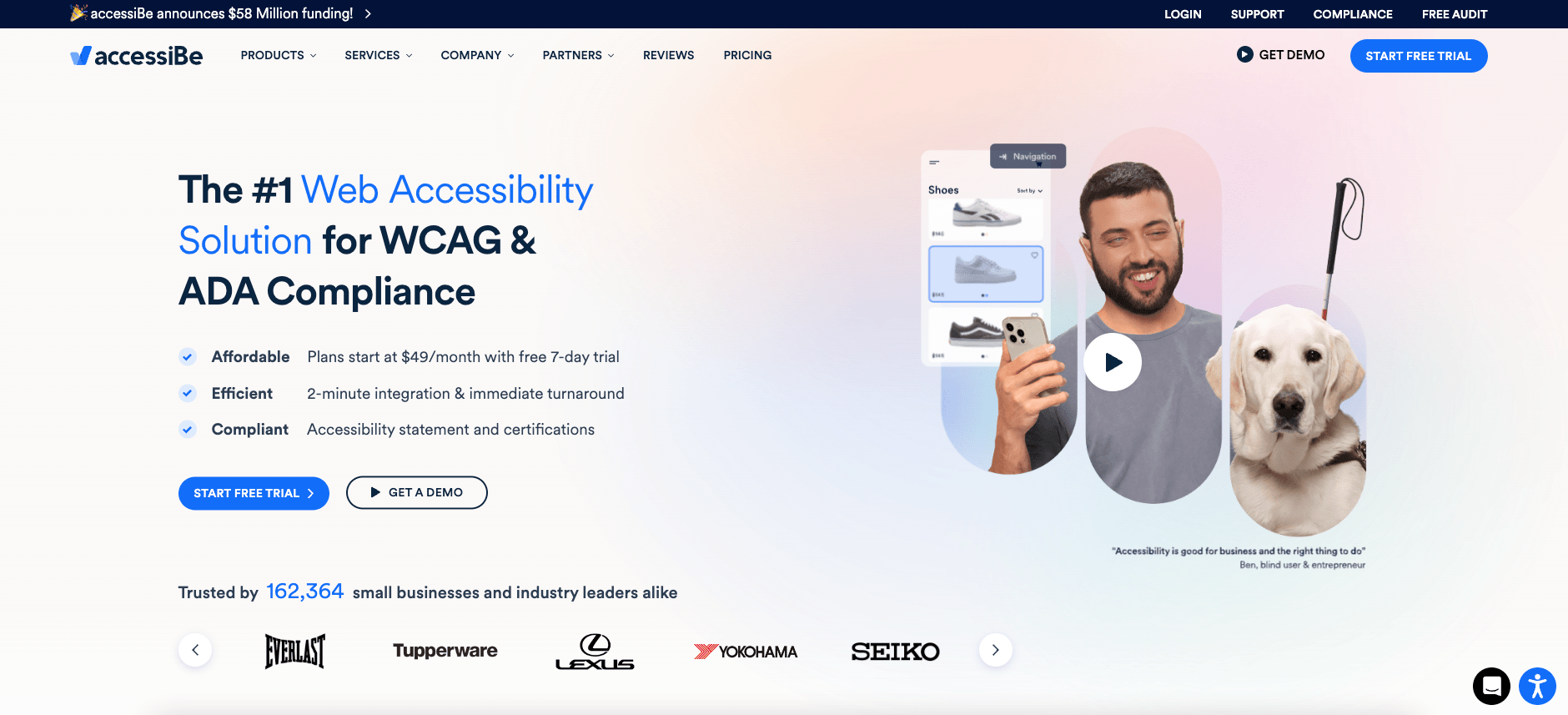

Pricing: $490/$1,490/$3,490/Custom Pricing per year
With 2-minute integration and turnaround, accessiBe makes ADA compliance fast and easy.
Their pricing plan is similar to UserWay’s, making it an equally affordable option.
Once you install the widget (it’s super easy) all it takes is 48 hours to scan your site and make the changes necessary to get it totally compliant with WCAG and ADA guidelines. It then will scan your site every 24 hours to make sure it remains compliant.
This widget is fully customizable, allowing it to adapt and fit into the design of your site intuitively.
Pros
- Quick integration process for fast compliance.
- Continuous 24-hour scanning ensures ongoing compliance.
- Customizable widget to match website aesthetics.
- Wide range of accessibility features.
- Offers a comprehensive solution for WCAG and ADA compliance.
Cons
- Customization might be complex for beginners.
- Initial 48-hour setup may delay full compliance.
- Pricing can be high for advanced features.
- Read our Review on accessiBe
AudioEye
Best for legal advice along with accessibility software
Pricing: from $490/$1,990/$4,990 per year
Using a simple three-step process with the option for legal advice, AudioEye offers just about everything you could possibly need to get your site compliant and keep it that way.
The three steps are: find, fix, and monitor. First, the widget will scan for over 400 accessibility issues. Then, they fix any issues they come across (they claim to have solutions for more accessibility issues than any other similar widget in the industry.) Lastly, automated monitoring refreshes with every visitor and on every page, keeping the site accessible in real time.
What sets AudioEye apart from others is the expert legal team that can help provide legal advice and counsel if you are challenged with legal action.
Pros
- Offers a thorough three-step accessibility process.
- Legal advice available for compliance challenges.
- Real-time automated monitoring maintains site accessibility.
- Extensive coverage of over 400 accessibility issues.
- Expert legal team support for legal challenges.
Cons
- Higher cost compared to some other plugins.
- Legal advice feature might not be necessary for all users.
- The process may be more complex than simpler plugins.
- Read our Review on AudioEye
EqualWeb
Free accessibility checker and solutions
Offering completely free AI-powered solutions, we love how EqualWeb makes accessibility… well, more accessible.
Currently installed in over 100,000,000 web pages, this plugin promises compliance with WCAG 2.1, ADA, Section 508, AODA, EN 301549 and IS 5568.
Their solutions are all-inclusive, featuring an AI EqualWeb ToolBar on the site, manually remediating accessibility issues, and periodically scanning, automatically and manually, for any new issues.
EqualWeb integrates these three elements into a whole solution, always remaining on top of the latest accessibility advancements and regulations while providing up to a $1,000,000 warranty.
Pros
- Free AI-powered solution for basic needs.
- Comprehensive approach including AI toolbar and manual remediation.
- Regular scanning for compliance maintenance.
- Large installation base across many web pages.
- Offers a significant warranty for compliance assurance.
Cons
- Advanced features require paid plans.
- Free version might not suffice for full compliance.
- Setup and customization might require some technical understanding.
SiteImprove
All-in-one site optimization solutions
Price: N/A – Does not disclose pricing on website
With a user-friendly platform, all-in-one content creation solutions, and global availability, SiteImprove is a great solution for businesses of all sizes.
Site owners can use SiteImprove to do everything from checking and correcting issues for accessibility to optimizing SEO to fixing broken links on the user’s site.
We recommend SiteImprove for businesses that are looking for an all-in-one solution that can ensure compliance while also optimizing their site, providing analytics, and creating end-to-end workflows that create a better experience for all users.
Pros
- All-in-one platform for site optimization and accessibility.
- Integrates SEO and link-fixing tools.
- User-friendly interface for easy management.
- Comprehensive solution for content, SEO, and accessibility.
- Suitable for businesses seeking an extensive range of web management tools.
Cons
- Pricing is not transparent.
- May include more features than needed for simple accessibility.
- Potentially overwhelming for users seeking only accessibility tools.
WP Accessibility
Price: Free
For $0, WordPress’s own plugin, WP Accessibility, can make your site more accessible.
This free plugin addresses many of the common accessibility issues that sites made with WordPress have. Some of these include adding language and text direction attributes to your HTML attribute if missing, adding long descriptions to images, adding an outline to the keyboard focus state for focusable elements, and adding labels to standard WordPress form fields, among others.
It’s important to note that the goal of this plugin is not to make a site ADA or WCAG-compliant. That being said, if you need a free and easy plugin to make your site more accessible, WordPress’s own is a good option.
Pros
- Completely free to use, ideal for budget-conscious websites.
- Addresses common WordPress-specific accessibility issues.
- Enhances site usability with features like text and language attributes.
- Adds labels to standard WordPress form fields for better navigation.
- Simple to install and use within the WordPress environment.
Cons
- Basic functionality may not cover all accessibility needs.
- Lacks the advanced features of some paid plugins.
- Not designed for comprehensive ADA or WCAG compliance.
WP ADA Compliance Check Basic
Price: Free
Though it won’t make your site accessible on its own, the WP ADA Compliance Check is a great way to see what gaps need to be filled in your site’s accessibility plan.
It integrates seamlessly with your workflow, keeping things simple. It works with any website editor, including Gutenberg, Elementor, Beaver Builder, ClassicPress, and Divi.
The test includes 79 error checks (52 for the basic version) which they report back to you in a comprehensive, easy-to-understand format.
This check can automatically scan new posts and content as it is published on your site or you can run a complete scan of your website to identify issues in all of your content.
Pros
- Free tool for checking site compliance.
- Integrates with various website editors for versatility.
- Provides detailed reports on accessibility issues.
- Automatically scans new content for compliance.
- Offers a comprehensive check with 79 error checks.
Cons
- Only identifies issues, doesn't fix them.
- Basic version has limited features compared to the full version.
- Requires manual intervention to address identified issues.
One Click Accessibility
Price: Free
One of the fastest ways to implement better accessibility features on your site is One Click Accessibility.
The accessible toolbar toggling hat that comes with the One Click Accessibility plugin allows users to offer things like resizing font (increase/decrease), grayscale, negative or high contrast, light background, links underline, readable font, and a link to Sitemap / Feedback / Help page.
Other notable features include enabling skip to content, adding outline focus for focusable elements, removing the target attribute from links, adding landmark roles to all links, and a customizer for style adjustment.
Pros
- Quick and easy implementation of accessibility features.
- Free to use, making it accessible for all website owners.
- Includes essential features like font resizing and contrast adjustment.
- Offers a sidebar for easy accessibility adjustments.
- Simple user interface for straightforward navigation.
Cons
- Limited in scope compared to more comprehensive plugins.
- May not be sufficient for full ADA/WCAG compliance.
- Lacks advanced customization options.
Zeno Font Resizer
Price: Free
While many of the other plugins on this list offer more generalized solutions, Zeno Font Resizer has a more focused approach.
This plugin uses JavaScript and jQuery to set and tweak the font size on your website. To make things even more convenient for users, their individual settings are saved in a cookie so that returning visitors see the same size they saw on their last visit.
Admins can use the admin page to set which specific content is being resized, the resize steps and other options regarding text size.
Pros
- Specifically focuses on font resizing for better readability.
- Free to use, offering an affordable solution.
- Saves user settings in a cookie for consistent experience.
- Admins can specify content areas for resizing.
- Simple and effective solution for text accessibility.
Cons
- Limited to font resizing only.
- Lacks broader range of accessibility features.
- May not be enough for complete site accessibility compliance.
Accessibility Widget
Price: Free
Another impressive open-source accessibility plugin is the aptly named Accessibility Widget.
This widget’s job is pretty straightforward: it allows users to install a simple sidebar widget to change the text size on the users’ WP sites.
Sure, it’s pretty simple, but that’s the whole point. After all, accessibility features should be accessible, right?
Pros
- Straightforward tool for enhancing text accessibility.
- Free and open-source, making it easily accessible.
- Allows users to change text size on WordPress sites.
- Simple to install and integrate into WordPress.
- Focuses on a key aspect of web accessibility.
Cons
- Limited functionality, focused only on text resizing.
- Does not address a wide range of accessibility issues.
- May require additional plugins for comprehensive accessibility.
Formidable Forms
Price: $39.50/$99.50/$199.50/$299.50 per year
Filling out any sort of contact form can easily become a hurdle that people with different disabilities have for a variety of reasons. Formidable Forms is dedicated to changing that.
By offering things like flexible form layout design, smart forms with conditional logic, RTL (right-to-left) text direction support, and conversational forms, form formatting (I’m saying form a lot) is easy to do as an admin and easy to fill out as a user.
Front-end editing allows users to customize their own experience without admin oversight.
Best of all, they offer analytics and reporting so that site owners can see what’s working and what’s not, and adjust accessibility options accordingly.
Pros
- Enhances form accessibility, crucial for user interaction.
- Offers flexible layout design and conditional logic.
- Supports RTL text direction, enhancing accessibility for diverse languages.
- Provides analytics and reporting for form performance.
- Front-end editing allows for user-customized experiences.
Cons
- Paid service with different pricing tiers.
- Primarily focused on form accessibility, not entire website.
- May require some setup and customization for optimal use.
What Does a Web Accessibility Plugin Do?
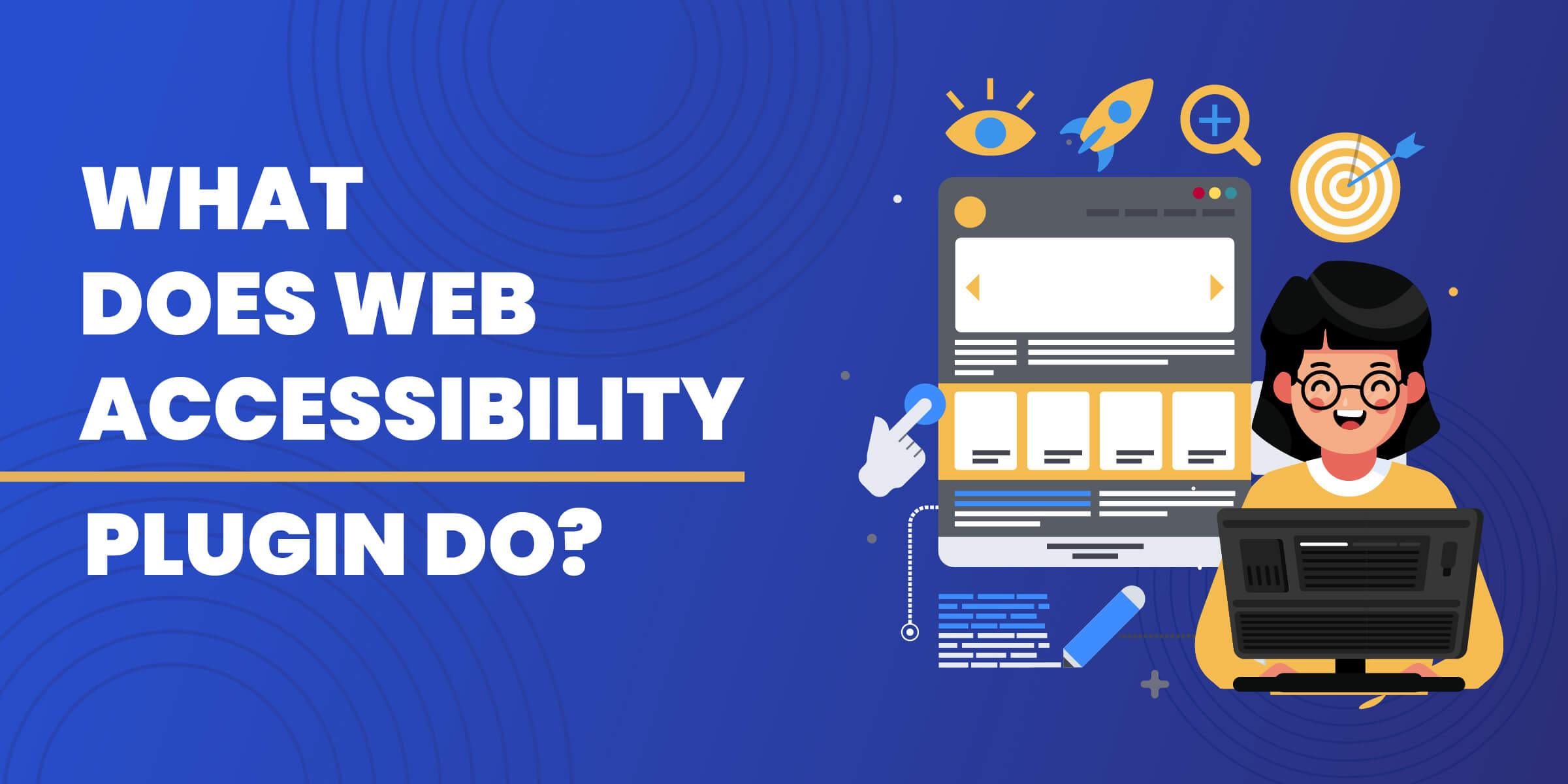

Web accessibility plugins are a quick way for sites to make their content more easily accessible and understandable to people with disabilities.
The deal is, ADA and WCAG guidelines require websites to have features that accommodate disabilities. Specifically, all sites (yes, all) must be robust, perceivable, operable, and understandable to everyone.
A web accessibility plugin adds a simple line of code to a site that automatically scans the site for inaccessible content or code and enables accessibility features that ensure the site meets all of the above criteria.
Accommodations like alt tags and text transcriptions for audio and video, high-contrast text, site language in header code, and suggestions/alternatives for user input errors are all included in these plugins and widgets.
Aside from the obvious benefit of having a site that allows for more inclusive user interaction, these features ensure that your site is compliant with federal laws and regulations, which prevents you from getting hit with a lawsuit.
Are Web Accessibility Plugins Easy to Implement?
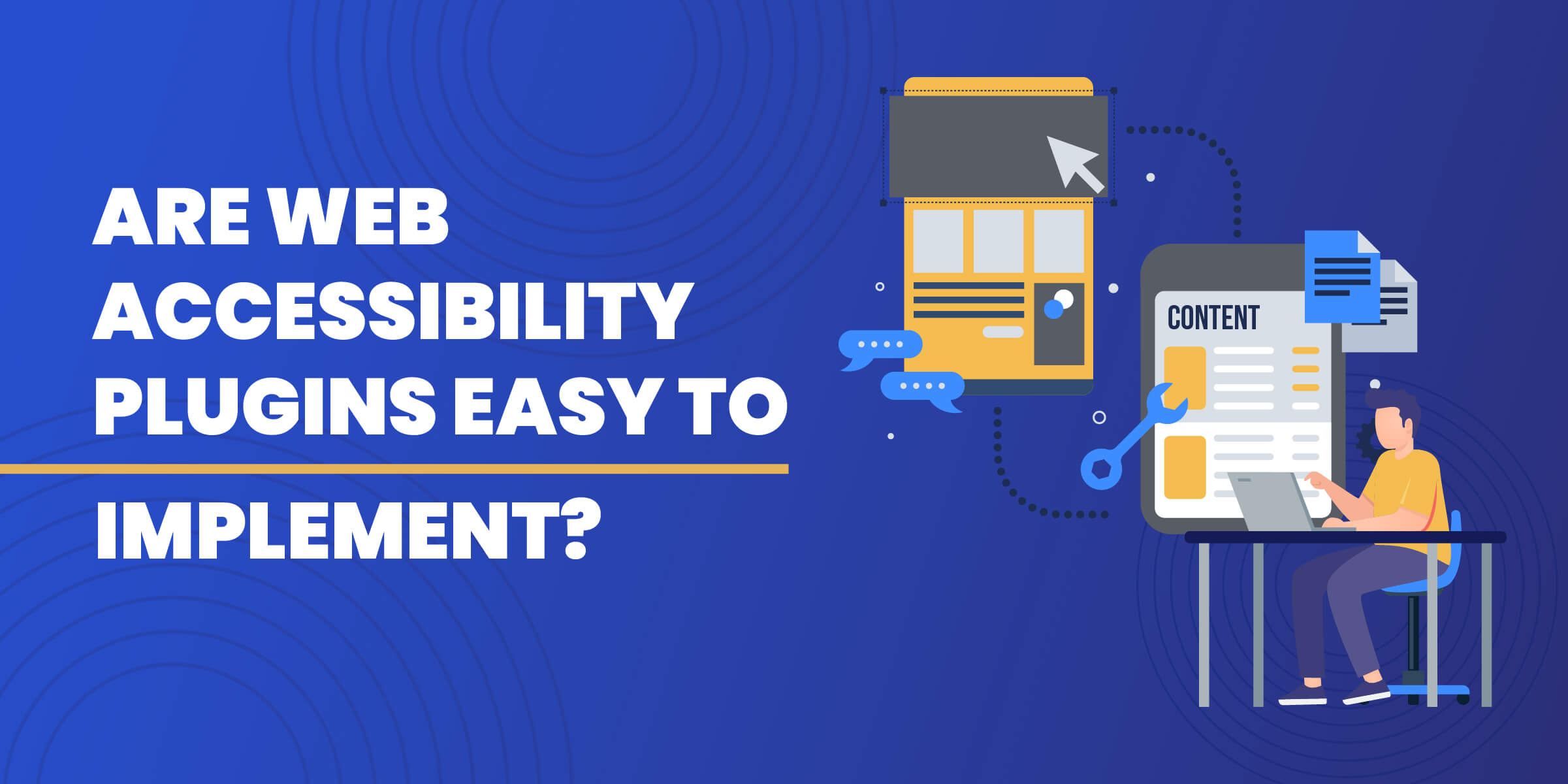

Yes! The best thing/biggest selling point of web accessibility plugins is that they are incredibly easy to implement.
These plugins often use just a single line of code. All a site owner needs to do is log into their WordPress site, select “plugins” on the sidebar, select “Add New,” and hit the “install now” button once they find the proper accessibility plugin. After selecting activate, the plugin does all of the work for you.
Since they function automatically, they’re a great alternative to hiring someone to code everything on your site in order to make it accessible.
Should I Get an ADA plugin?
If you want to make sure your site is accessible and compliant with the law but don’t want to spend the time and money to hire a developer to create everything from scratch, you should get an ADA plugin.
They’re inexpensive, they’re easy to use, and they can save you a lot of time and stress down the line.
Frequently Asked Questions
What is an accessibility plugin?
An accessibility plugin is a short line of code created to be easily implemented on a site to make site functions and user experience accessible to people with disabilities.
How do I add accessibility features to my website?
You can add accessibility features to your site by installing a simple plugin or hiring a developer to write code that creates more accessible site functions.
What are the 4 principles of web accessibility?
The four principles that guide the WCAG are known by the acronym POUR, which stands for perceivable, operable, understandable, and robust.
What does web accessibility do?
Web accessibility alters the code of a site to offer features to users with different disabilities that make it easier (or possible) for those users to navigate the site.














